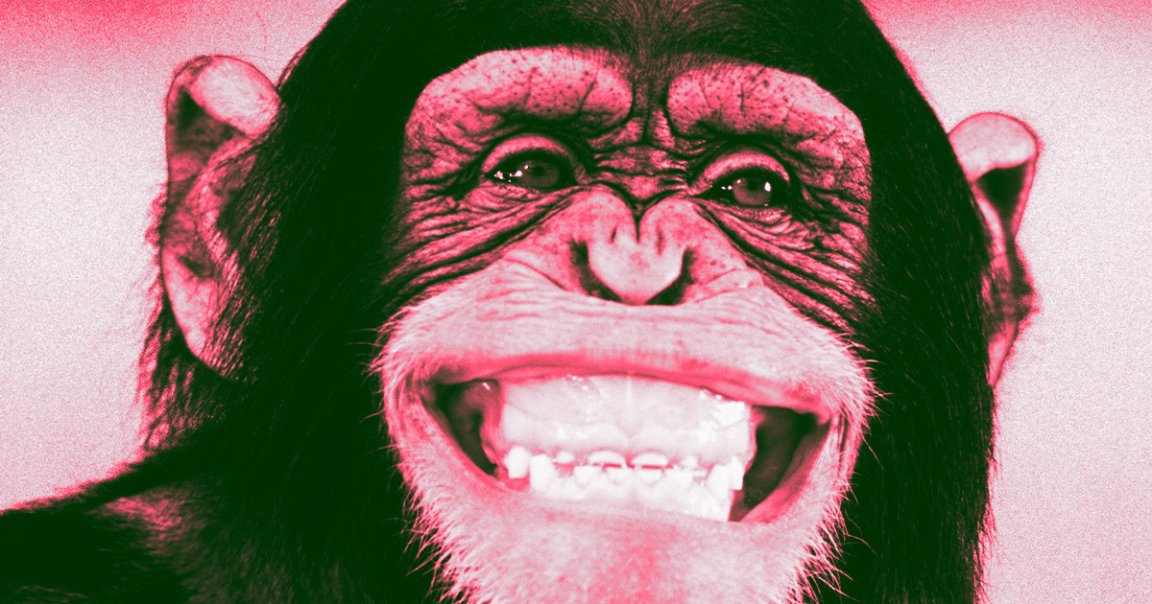
Spelling Zee
A team of researchers has reignited debate over whether apes can speak, after analyzing footage of at least three different chimpanzees appearing to say “mama” on camera.
The work, published in the journal Scientific Reports, challenges long held beliefs on how our ape ancestors evolved to develop speech capabilities, because it appears that apes already possessed the “neural circuitry” necessary for rudimentary speech.
“Our findings demonstrate that in the absence of direct data-driven examination, great ape vocal production capacities have been underestimated,” the researchers wrote in the study.
Speech Check
Research into the topic dates back at least a century, when some scientists attempted to raise primates like human children in their homes. A few claimed that their chimpanzees could say words like “mama,” “papa,” “up,” and “cup” — but these were largely brushed aside due to the highly unethical nature of the experiments.
And let’s be clear: these were really unethical. But in revisiting some of the resulting recordings as well as more recent ones, however, the researchers felt that there was more to them than what other scientists were previously willing to give them credit for.
A particularly compelling case is of a chimpanzee named Johnny, who lived at the Suncoast Primate Sanctuary in Florida, repeating the word “mama” after a woman asked him to on video.
So the researchers did what no one else had thought to do before: perform a phonetic analysis on the recordings. In the spectrograms of the audio files, they found features that were “readily identifiable” using techniques designed to analyze human speech, which showed distinct signs of syllabic production.
The apes were able to perform “consonant-to-vowel phonetic contrasts” — combining the “M” and “A” sounds — by recruiting voice, jaw and lips, the researchers concluded, like how humans do.
Aping Us
To demonstrate that these were recognizable words, the scientists played recordings of the chimp sounds to human listeners who weren’t aware of their origins, along with recordings of humans with speech pathologies, and asked them to transcribe what they heard. Most of the participants were “reliably” able to hear the apes saying “mama.”
Still, the findings are already proving divisive. Julia Fischer, a cognitive scientist at the German Primate Center in Göttingen, believes the supposedly talking apes simply added “pant-grunts together and were rewarded for doing so.” In the video of Johnny, for example, the woman gives him candy after he makes the sounds.
“What the apes are doing vocally has nothing to do with human speech,” Fischer told The New York Times.
Others are more open to the findings, believing that humans didn’t uniquely evolve the neural circuitry needed for speech, but inherited them.
“Humanity, despite all its particularities, did not spring up from under a rock, but was molded by evolution from the clay of our primate ancestors,” Michel Belyk, a psychologist at Edge Hill University in the UK, told the NYT.
More on primates: Endangered Primates Heard “Singing Together” After Rare Birth in Captivity